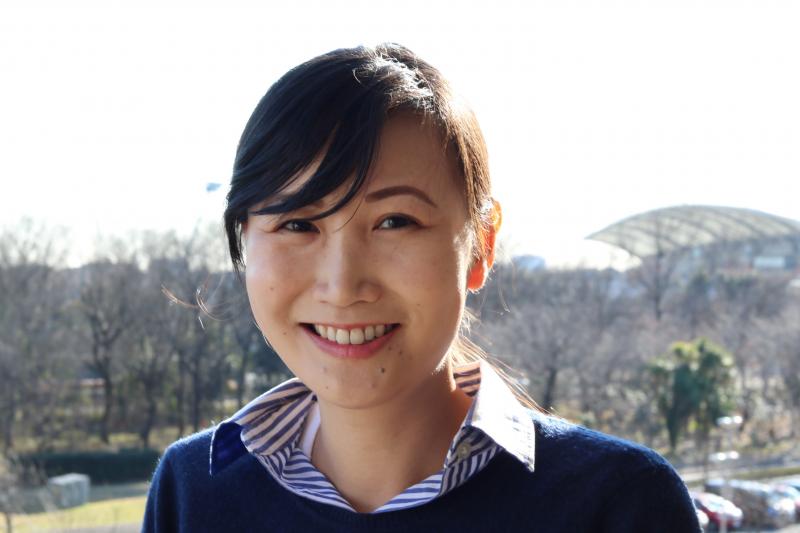
Name: JULIANA KWAN (Astronomer)
Hometown: Sydney, Australia
Position: Project Researcher, Kavli IPMU/Post-doctoral Researcher, UPenn
Recommended reading: A People’s History of the World, by Chris Harman
Favorite place in Japan: “Ramen street, beneath Tokyo Station. The food there is cheap but really tasty," Kwan says.
What can you tell us about your current research at Kavli IPMU?
I’m a Cosmologist, which means I’m interested in things like the history of the Universe, how it evolved into its current state, and where it will be in the future. I’m particularly interested in weak lensing and the growth of large-scale structure. Using N-body simulations and so on, I look at how galaxies form on a large scale by examining the filaments that intertwine with them. These are condensed structures, which started forming after the Big Bang when hot matter collapsed onto gravitational potentials that were seeded in the Early Universe. After they condensed, such structures became large webs that intertwined with various galaxies. I compare outputs from these N-body simulations to measurements that we make using telescopes.
Can you say something about your experience of life at Kavli IPMU?
I think it has been great. Moving to Japan from a Western country was quite a culture shock. I didn’t know much Japanese before I came here, but the staff at Kavli have been really friendly and helpful. They helped me with things like renting an apartment and paying the water bill. In terms of research, I find that there is a nice group here at Kavli--a lot of people have a very different background to mine, so when you interact with them, you get a different point-of-view that might trigger a new direction in the way you look at something. I’ve been paired up with an office mate--Christophe Bonner, an experimentalist who works with neutrinos--who is not from my field, and that has been really helpful in helping me see things differently.
Can you tell us something about your academic background?
For undergraduate studies, I majored in physics and applied mathematics; my Phd. was in physics at the University of Sydney in Australia. My first post-doc, meanwhile, was at the Argonne National Laboratories, just outside Chicago. I then went to the University of Pennsylvania for two years, before coming to Kavli IPMU in 2016.
What drew you to science, and your particular field, in the first place?
Before living in Sydney, I grew up in a very rural part of Australia, a place where the night’s sky is clearly visible. If I just looked up, without any specialist equipment, I could see how beautiful it is. And as I like to approach things from a rational and logical point-of-view, I combined my love of the sky with an interest in science.
What can you tell us about future projects, or the next step in your career?
I’m very interested in the large survey that Kavli IPMU is engaged in at the HSC (Hyper Suprime-Cam) of the Subaru Telescope in Hawaii. I hope to work more closely with the people there on the growth of structure and gravitational lensing.
Where can we see or read about your research?
My most recent publican is titled “Cosmology from large-scale galaxy clustering and galaxy-galaxy lensing with Dark Energy Survey Science Verification data.” We analyzed the first data release from the Dark Energy Survey (a wide field imaging survey) for signatures of gravitational lensing and galaxy clustering to constrain cosmological parameters.
Link to the publication: http://adsabs.harvard.edu/abs/2017MNRAS.464.4045K






